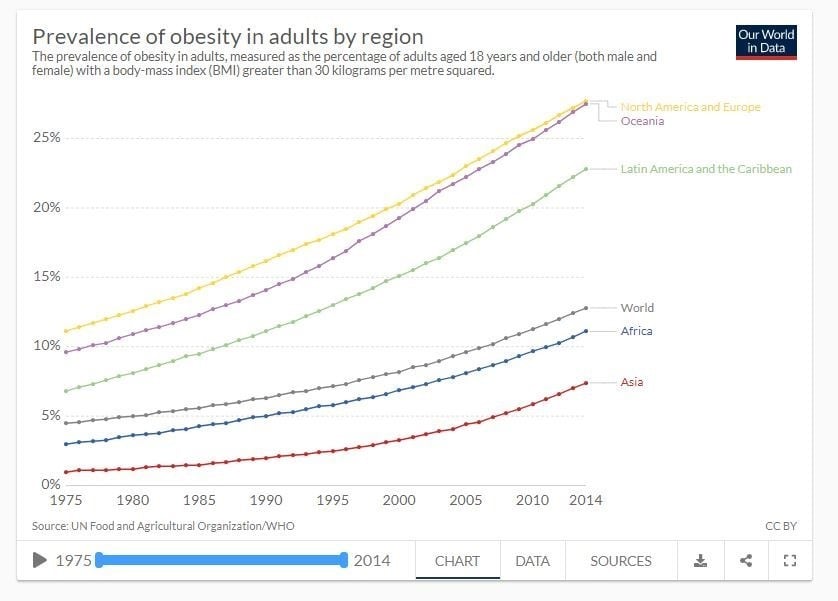This is why obesity is classified as a type of malnutrition

Overeating is equally damaging to human health as not eating enough. Image: REUTERS/Brendan McDermid
The word ‘malnutrition’ conjures up images of painfully thin children with protruding ribs and swollen bellies.
And many children – especially in war-torn countries such as Yemen – are living on the brink of famine, despite Zero Hunger being one of the UN’s Sustainable Development Goals.

But the World Health Organization’s definition of malnutrition is significantly broader than having an insufficient food supply. That's because overeating - or consuming the wrong types of food - is equally damaging to human health.
This was highlighted recently when a British teenager went blind after subsisting on a diet of chips, crisps, white bread and processed meat.
Although he was not underweight, a critical lack of vitamins and nutrients severely damaged his eyesight.
Every country is fighting malnutrition
The impact of eating too much, too little, or the wrong types of food was summed up in the latest Global Nutrition Report, which found that poor diets account for nearly one-in-five deaths.
It also stressed that almost every country is battling some form of malnutrition, whether it’s anemic children, women who are overweight but undernourished or rising obesity among teenagers.
The WHO has found that being overweight or obese is now linked to more deaths worldwide than being underweight, a result of associated heart disease, stroke, diabetes and some cancers.
The WHO now has three main categories of malnutrition:
- Undernutrition
- Micronutrient-related malnutrition
- Overweight and obesity
Shaping the global agenda
World hunger has risen for the third year in a row. But world obesity has tripled since 1975.
And there are more people who are obese than underweight in every region of the world, with the exception of parts of sub-Saharan Africa and Asia.
The World Economic Forum has created a Global Future Council on Food Systems Innovation to address some of the challenges relating to food, including introducing better diets.
What is the World Economic Forum’s Sustainable Development Impact summit?
Don't miss any update on this topic
Create a free account and access your personalized content collection with our latest publications and analyses.
License and Republishing
World Economic Forum articles may be republished in accordance with the Creative Commons Attribution-NonCommercial-NoDerivatives 4.0 International Public License, and in accordance with our Terms of Use.
The views expressed in this article are those of the author alone and not the World Economic Forum.
Stay up to date:
Global Health
Forum Stories newsletter
Bringing you weekly curated insights and analysis on the global issues that matter.
More on Health and Healthcare SystemsSee all
Mansoor Al Mansoori and Noura Al Ghaithi
November 14, 2025









